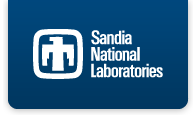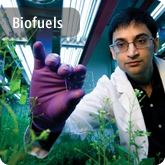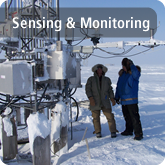Microalgae hold significant promise in terms of producing a significant portion of the renewable fuels that will be required to meet the biofuel production targets established by the Renewable Fuels Standard (RFS-2) as part of the Energy Independence and Security Act (EISA) of 2007. Advanced biofuels derived from microalgae at the commercial scale could meet, depending on productivity, the transportation fuels needs of the entire United States using a relatively small land area as compared to that required by lignocellulosic fuels. Microalgae consume CO2 as a nutrient, can be grown with impaired (e.g., brackish) water sources on land that does not compete with food, and have been calculated to produce much higher fuel yields potential than other terrestrial biomass feedstocks, and without competing for the land required for agricultural production. However, despite their huge potential, these potential benefits of microalgae have not been realized at the commercial scale and the state of technology for producing algal biofuels is regarded by many in the field to be in its infancy with significant breakthroughs in science and engineering needed before becoming commercially viable.
 Sandia is carrying out research and development on multiple aspects of microalgal biofuels, including:
Sandia is carrying out research and development on multiple aspects of microalgal biofuels, including:
- develop a fundamental understanding of lipid metabolism in microalgae through our unique spectroscopy capabilities
- advanced dewatering techniques
- genetic engineering of microalgae to increase lipid production
- utilize advanced spectroscopic tools to monitor health and lipid production in microalgae
- computational modeling of algal production raceways
- lifecycle and systems analysis of algal biorefineries
Project highlights:
Sustainable Algal Biofuels Consortium (SABC). While lipid conversion into biofuel is one of the key products derived from algae, there are several others that may help balance the cost of operating an algal biorefinery. This project, funded by DOE’s Office of Biomass Program and led by Arizona State University in partnership with the National Renewable Energy Laboratory and Sandia, is studying and developing biochemical routes to convert the remaining algal biomass after lipid extraction to biofuel. The SABC conducts three areas of algae research: (1) characterization of intact algae cells and algae remnants (the portion of algae remaining following lipid extraction) with respect to ash, protein, carbohydrate, and lipid content, (2) biochemical conversion of intact algae cells and algae remnants to ethanol with a focus on developing tailored hydrolytic enzymes, and (3) SABC will conduct fuel testing to determine fuel characteristics and ensure that these fuels meet ASTM standards.
 Pond Crash Forensics. A significant challenge in the commercialization of algal biofuels is the susceptibility of the open ponds used to grow them to rapid losses in productivity due to contamination and/or infection. In this DOE Office of Biomass Program funded project, Sandia is developing diagnostic analytical tools that will be used to identify the root causes of pond instabilities through the forensic analysis of samples taken from outdoor raceways post-crash. Once identified, we will confirm by reproducing crashes in laboratory experiments. This pond crash diagnostic system will take advantage of modern methods in metagenomic analysis, advanced imaging, and forensic microbiology to identify, characterize and, when possible, isolate the etiological agent of a pond crash. As part of our laboratory and field analysis we will utilize Sandia’s unique capabilities in hyperspectral imaging to characterize the spectral signatures of algal health and indications of stress in the earliest phases of a pond crash.
Pond Crash Forensics. A significant challenge in the commercialization of algal biofuels is the susceptibility of the open ponds used to grow them to rapid losses in productivity due to contamination and/or infection. In this DOE Office of Biomass Program funded project, Sandia is developing diagnostic analytical tools that will be used to identify the root causes of pond instabilities through the forensic analysis of samples taken from outdoor raceways post-crash. Once identified, we will confirm by reproducing crashes in laboratory experiments. This pond crash diagnostic system will take advantage of modern methods in metagenomic analysis, advanced imaging, and forensic microbiology to identify, characterize and, when possible, isolate the etiological agent of a pond crash. As part of our laboratory and field analysis we will utilize Sandia’s unique capabilities in hyperspectral imaging to characterize the spectral signatures of algal health and indications of stress in the earliest phases of a pond crash.
 ECIS Highlights
ECIS Highlights













 RSS
RSS Google+
Google+ Twitter
Twitter Facebook
Facebook LinkedIn
LinkedIn YouTube
YouTube Flickr
Flickr
